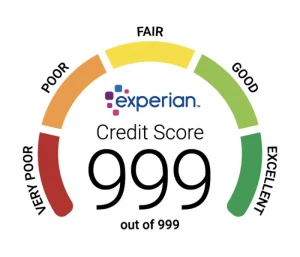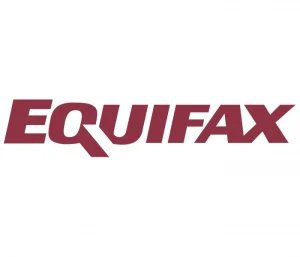
When it comes to managing your finances, one term you may have heard before is “credit score.”
But what exactly is a credit score, and why is it important?
- What Is a Credit Score
- What Does a Credit Score Look Like
- What Score Do You Need to Get Finance
- How Can You Check Your Credit Score
- Why Is a Credit Score Important
- Factors That Contribute to Your Credit Score
- Factors That Don’t Contribute to Your Credit Score
- How To Improve Your Credit Score
- The Benefits of Using a Finance Broker
What Is a Credit Score
Simply put, a credit score is a numerical representation of your creditworthiness used by lenders to help decide whether you qualify for credit, such as a loan, mortgage, or car finance.
The higher your credit score, the more trustworthy you appear to potential lenders and the more likely they are to lend you money.
Credit scores are calculated based on several factors, including:
- Payment history: Have you paid your previous finance on time?
- Credit utilisation: Do you have a history of using credit and understand how to repay your loans?
- Length of credit history: How long have to been using finance for?
- Types of credit: Have you paid for mortgages, car loans or credit cards in the past?
- Recent credit inquiries: Have you recently been applying for multiple loans? Applying for numerous loans could indicate that other finance lenders have rejected your application or that you plan to take more credit than just that application, extending your affordability.
The exact formula used to calculate credit scores varies depending on the credit agency and the specific scoring model the agency uses.
You’ll lose points for having information on your report that suggests you’re unlikely to manage credit responsibly, such as previous late payments and defaults. Conversely, you’ll gain points for things that lenders usually view positively, such as a track record of always paying on time and being on the electoral roll.
It is important to remember that credit scores are ever-changing. For example, you could take specific steps to increase your score; similarly, some factors could reduce your score.
What Does a Credit Score Look Like
Your credit score is a three-digit number from 0 – 999; however, what number constitutes a good or bad score can differ depending on the credit agency you use.
Below is an outline of how Experian breaks down your credit score:


- Excellent (800–850:) Your borrowing limits are higher, with lower interest rates, and your finance application will likely be approved.
- Very Good (740–799): You may not get the best deals. However, you are likely to get approved for finance.
- Good (670–739): You might get OK interest rates, but your credit limits may not be very high.
- Fair (580–669:) Your borrowing limits will be lower, with higher interest rates. Only specific lenders are likely to approve your finance application.
- Poor (300–579): You’re more likely to be refused finance except for certain circumstances.
*note that this is a guide and may differ for individual circumstances.
What Score Do You Need to Get Finance
There’s no correct number that will guarantee lenders will approve an application if you apply. However, if your credit score is excellent, then the chances of successfully applying for credit are much more significant, and the amount you can borrow is higher. Finance lenders are also likely to charge you a lower interest rate as there is little to no risk of lending you money, as based on your history, you are likely to pay their money back.
If your credit score is poor, you’ll find it harder to borrow money. However, this doesn’t mean you won’t be able to lend money. Specific finance lenders specialise in poor credit lending. However, the amount of money they are willing to lend you is likely lower and the amount of interest they charge much higher.
How Can You Check Your Credit Score
Several companies offer free credit checks, and the most popular is Experian or Equifax.
You can create a free account with Experian and get an updated credit score every month. They also offer a paid subscription, allowing you to dig deeper into your score and what may be affecting it. If you have a lower score, consider the paid subscription in the short term to have a clear picture of what you need to do to improve your overall rating.
Recently, banks have offered free monthly credit scores to customers utilising Internet banking. Therefore, it is worthwhile contacting your bank to see if this is something that they offer.
Why Is a Credit Score Important
Your credit score is crucial in financial products and helps determine whether a finance lender will offer you credit. It will also impact how much interest the lender will charge you and what you pay.
A higher score is better because a finance lender will see you as a lower risk and be more likely to offer you a loan.
Every lender follows a different policy for credit scoring, so whilst one lender may turn you down, you may be accepted elsewhere. Because of this using a finance broker can have its benefits, as it allows you to apply to several lenders with just one application. Using a finance broker will also minimise the impact on your credit file, as too many credit searches in a short period may be viewed negatively by lenders.
Factors That Contribute to Your Credit Score?
Credit scores are calculated based on a variety of factors. Here’s a closer look at each of the main components:
- Payment History: This factor accounts for 35% of your score and determines whether you’ve made your payments on time. Late payments, missed payments, and defaults can all harm your score.
- Credit Utilisation: This factor accounts for 30% of your score and looks at how much of your available credit you’re currently using. Keeping your credit utilisation below 30% is best.
- Length of Credit History: This factor accounts for 15% of your score and looks at how long you’ve had credit accounts open. Generally speaking, the longer your credit history, the better.
- Types of Credit: This factor accounts for 10% of your score and looks at the different kinds of credit accounts you have open. A mix of different types of credit (such as credit cards, car loans, and mortgages) can be beneficial.
- Recent Credit Inquiries: This factor accounts for 10% of your score and looks at how often you’ve applied for credit recently. Too many inquiries in a short period can be a red flag to lenders.
What Affects Your Credit Score →
Factors That Don’t Contribute to Your Credit Score?
Some common myths that don’t affect your score include:
- Checking your credit score.
- The activity of previous occupants at your home address.
- The activity of people you live with.
Also, companies are only interested in people you’re financially linked to, so living in the same house with someone isn’t a financial link unless you share a joint mortgage – sharing the rent doesn’t count.
How To Improve Your Credit Score
If you’re looking to improve your score, there are a few steps you can take.
- Make sure you’re making your payments on time and in full.
- Avoid maxing out your credit cards.
- Keep your credit utilisation below 30%.
Additionally, consider checking your credit report regularly to look for errors or inaccuracies that could negatively impact your score.
Here are 5 Ways to improve your credit score →
If you have been refused credit and are unsure why there are 5 reasons why a finance lender might not accept your application →
The Benefits of Using a Finance Broker
When you set out to buy a new car or house on finance, you will no doubt be looking to get the best interest rate possible with the lowest monthly repayments. Therefore, you are unlikely to apply to one finance lender and immediately accept what they offer you.
You will likely want to search the market, apply to a few different finance lenders, and see which offers you the most competitive deal.
Each time you apply directly to a finance lender, they will perform a “hard search” on your credit file, leaving a marker for any other finance lenders doing a search on your credit file to see. As mentioned earlier, this can affect your score.
Using a broker has the benefit in that they will perform a “soft search” on your credit file, which doesn’t leave a mark on your credit file. This “soft search” will give them a high-level indication of your score. From there, they can use their industry experience to send your application to the finance lender most likely to approve your finance application and give you the most competitive rate based on your score.
Brokers also use the power of building relationships with lenders through years of working together to get them to offer competitive rates. If the lender is unlikely to offer rates that the broker feels are competitive and good value for the client, then they are unlikely to use them for clients in the future.
Most brokers, such as Dorsia Finance, offer this service for a fee and make their money from the finance lenders that accept the application, so there is no extra charge. Why Use a Finance Broker →




